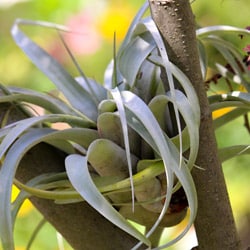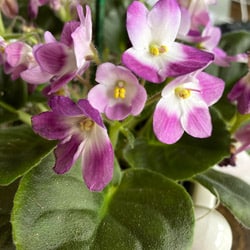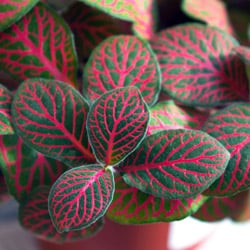Houseplants for the Home Office
Houseplants can be a wonderful and invigorating addition to the home office, bringing different benefits to your workspace. But which houseplants are best for a home office setting, and what care do they need to thrive?
Benefits of Home Office Houseplants
Houseplants bring a touch of nature into your home office, nourishing peace and tranquility that can reduce stress no matter what the workday brings. Studies have shown office plants can boost productivity and creativity, enhancing your work and increasing job satisfaction. This is ideal for the home office, where distractions and erratic work hours can be a constant concern.
Office houseplants also offer a range of physical benefits. These plants act as a natural filter for cleaner air, reducing dust and allergens to help alleviate respiratory problems. Houseplants also reduce odors and airborne chemicals and can be especially effective in small or unusual spaces such as closets or niches that so often become home offices. Houseplants also improve indoor humidity, which can further improve breathing and ease dry skin.
Best Houseplants for the Home Office
There are many beautiful options for home office houseplants. When choosing the best plant, take note of the office’s sunlight levels and typical temperatures, and select plants that can thrive in those conditions. Furthermore, plants that won’t spread too dramatically are often preferred for the home office, so they don’t usurp extra desk space. Top houseplants for the home office include:
Snake Plants
Also called sword plant, mother-in-law’s tongue, and sansevieria, these hardy, upright plants come in different sizes and thrive even with irregular care. They are slow growers, making them perfect for office spaces.
African Violet
These bushy blooms add a burst of color to any desk, and they thrive in the same temperature and humidity conditions that are often found in home offices. Furthermore, these flowers are happy in fluorescent light, and miniature varieties are great for small desks.
Air Plants
Different tillandsias are easy houseplants for any space and are very low maintenance. Because they do not require soil, there is no need for planting in a pot. They are also beautiful accents in miniature terrariums.
Lucky Bamboo
Actually a type of dracaena, these upright plants are believed to channel good vibes and positive fortune — the ideal choice for any workspace. They can grow well in low light conditions, and their slow growth means they will keep their form well for years.
Peace Lily
These easy-to-grow plants come in medium and large sizes, and their dark green, glossy foliage is an elegant accent to any office space. They do require brighter light, and rotating them regularly can help keep their growth even.
Succulents
There are many different succulent varieties that can add a bit of whimsy to any office space. Choosing succulents that thrive in lower light is best for offices, including jade plants, zebra plants, and echeveria species.
Fittonia
This colorful plant comes in green, white, pink, and reddish foliage, allowing for personalization in the office space. There are several size options as well, and the 3-6 inch plants are best for offices. These plants require higher humidity to look their best.
Ponytail Palm
This plant is available in a desktop size or as a floor plant. Ponytail palms can add a tree-like accent to a larger office. These plants still thrive in high or low light conditions, however, making them a good choice for home offices.
Caring for Office Plants
No matter which houseplants are part of the home office, they need appropriate care, just like houseplants in any other room. Choose a pot of the appropriate size for the plant’s needs, and be sure the pot has adequate drainage holes. Potting soil mix formulated for houseplants is best, and specialized plants such as succulents or flowering plants will thrive in soil mixes that meet their specialized needs. Adding a slow-release fertilizer can nourish office plants to keep them at their best.
Take care not to overwater office plants, as overwatering can lead to discoloration, root rot, soil funguses, and plant death. A small watering can is ideal for watering these plants directly at the base so the foliage is not soaked, which could attract different pests. As the plants grow, trimming them with a sharp pair of hand pruners will keep them neat and manage their size so they always bring their best to every workday.
Houseplants can thrive all over the house, including in the home office. By choosing the best type of plant to suit the office space and providing it with exceptional care, you will be nourishing not only the plant but your own professional productivity as well.















